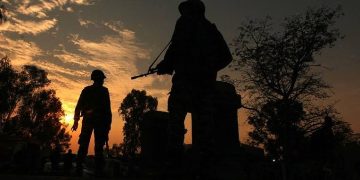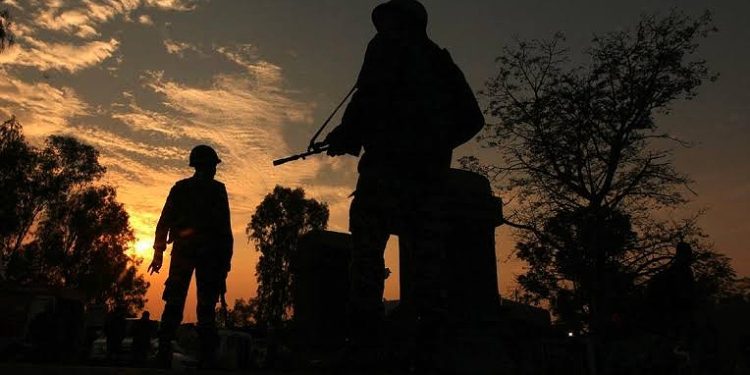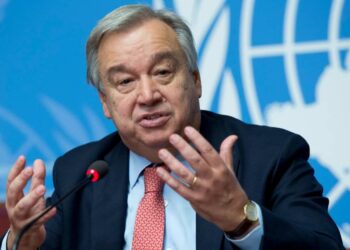By John Ikani
Mali’s military has acknowledged suffering significant casualties in a two-day clash with Tuareg rebels and al-Qaeda-linked militants. This is a rare admission of defeat for the army.
The fighting erupted amidst a sandstorm, with the Russian mercenary group Wagner, a key ally to Mali, reporting the death of one of its commanders. While neither the Malian military nor Wagner has provided specific numbers, estimates suggest that Wagner suffered between 20 and 80 fatalities.
The battleground was the desert near Tinzaouaten, a town bordering Algeria. Wagner claims that their forces and Malian soldiers were retreating from Tinzaouaten after engaging with Tuareg separatists. As they awaited reinforcements, their convoy was ambushed by both the separatists and militants from the al-Qaeda affiliate, JNIM.
The Malian army corroborates this account, stating that one of its units was encircled by a coalition of terrorist forces. Intense fighting ensued until reinforcements arrived. The army admitted to heavy losses in both personnel and equipment.
Wagner estimates that the combined force of Tuareg and Islamist fighters exceeded 1,000. They also reported the loss of one of two helicopters deployed to assist the mercenaries and Malian soldiers.
JNIM claims to have killed 50 Russians and 10 Malian soldiers, although these figures remain unverified. The extent of cooperation between the separatists and Islamists is unclear.
These groups formed an alliance in 2012, leading to Islamist militants taking control of northern Mali during a Tuareg uprising. This prompted intervention from France, the former colonial power, followed by the United Nations.
The Tuareg groups subsequently signed a peace agreement with the government, but the jihadists continued their attacks from desert hideouts. The persistence of this insurgency was a primary reason for Mali’s military seizing power in 2020, accusing the civilian government of failing to provide security.
The junta vowed to end the militant attacks, demanding the withdrawal of French and UN forces, and subsequently engaging Wagner. However, this action angered some Tuaregs, leading to renewed armed conflict.
Tensions between the more prosperous south and the neglected arid north, which separatists call Azawad, have fueled the conflict. The entire country remains unstable, and these recent setbacks for the Russian-backed junta are a significant blow.
Wagner has requested additional support from the Russian defence ministry, but the outcome of this request is uncertain given Russia’s involvement in the Ukraine war.
A spokesperson for Ukraine’s military intelligence claimed Ukrainian involvement in the ambush against Wagner fighters in Mali, providing the rebels with crucial information. However, a photo circulating online purporting to show a Ukrainian flag held by Malian rebels has been debunked.
Despite last year’s failed mutiny against Russian President Vladimir Putin and the death of its leader, Yevgeny Prigozhin, Wagner continues to operate in Africa under different paramilitary structures.




































